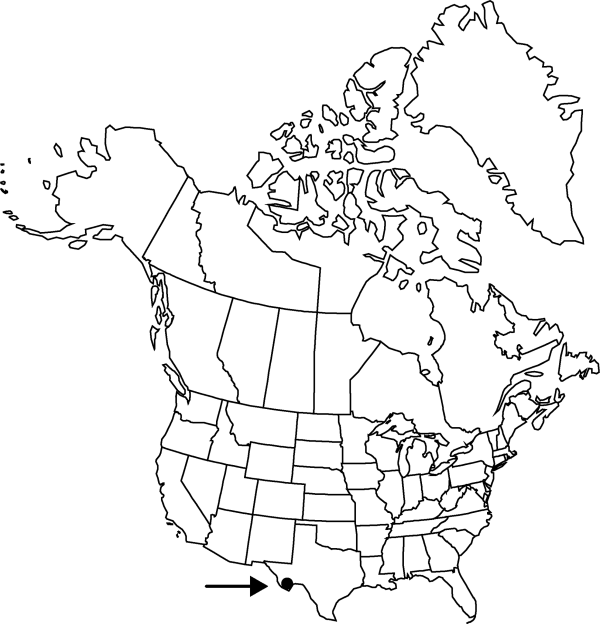Difference between revisions of "Epithelantha bokei"
Cact. Succ. J. (Los Angeles) 41: 185, figs. 2, 3(lower). 1969.
FNA>Volume Importer |
FNA>Volume Importer |
(No difference)
| |
Revision as of 20:00, 24 September 2019
Plants unbranched (very rarely branched), appearing pure white or slightly yellowish, smooth, and shiny in general aspect. Stems flat-topped, disk-shaped, short cylindric, or cylindric, 2–5 cm diam. Spines (40–)50–90 per areole, in more than 3 superimposed series; mature lateral spine clusters uniformly white to creamy yellow, 2–2.5(–4) mm diam.; longest intact spines 4.5–7 mm; worn spines 0.1–2 mm. Flowers conspicuously exserted beyond longer spines at stem apex, 1–1.7 × 1–1.7 cm; inner tepals 13–21 per flower, 5–6(–9) × 1.5–2.3(–3) mm; stamens 20–40. 2n = 22.
Phenology: Flowering spring–early summer (May–Jun); fruiting summer–fall.
Habitat: Chihuahuan Desert on rocky, barren hills of sedimentary substrates
Elevation: 700[-1400] m
Distribution

Tex., Mexico (Coahuila).
Discussion
Epithelantha bokei is an obligate outcrosser. Its flowers tend to open in mid afternoon, when those of E. micromeris are already closing.
Epithelantha bokei is in the Center for Plant Conservation’s National Collection of Endangered Plants.
Selected References
None.